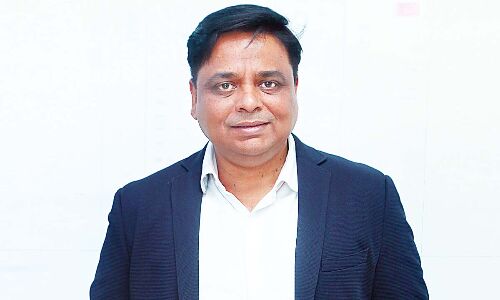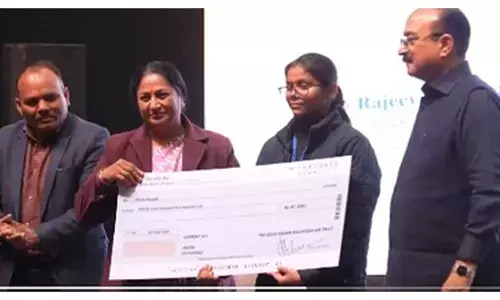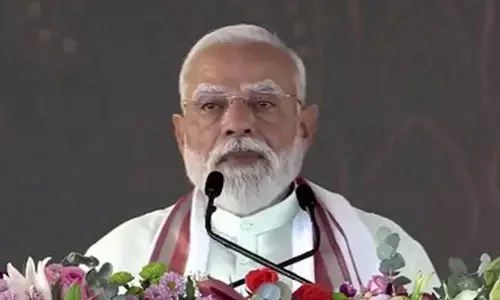Future of GST is a network-based model where supplier and buyer connect in real time

TaxGenie helping over 150 corporates, 10000 suppliers across India, says Rakesh Dube of TaxGenie
TaxGenie's holistic approach in solving income tax returns (ITRs) compliances separates it from the competition. So apart from having the domain knowledge, in supply chain management and taxation, the company makes use of modern tools like artificial intelligence (AI) and machine learning (ML), in their software, that aids in providing service to its clients. "We understand GST is a game of ecosystem compliance. "The input tax credit is a big challenge both from compliance as well as working capital standpoint," says Rakesh Dube, founder and MD, TaxGenie in an exclusive interview with Bizz Buzz.
As an entrepreneur, I saw an amazing opportunity with GST, especially with compliance data management and developing insight for the customer. In May 2017 with the GST national launch, I along with my founding team members launched TaxGenie, the pathology lab of tax compliance and beta products with live customers, he adds.
We started with simple GST filing, reconciliation services, and e-invoice as one of the verticals. By 2021, we added two more verticals - Tax Intelligence Platform (TIP) and PayInvoice (Payable Automation)
In the first two years after GST launch, we, along with the system, were learning, adapting, and improving the new ways of working. During this time our validation came in the form of MNCs and corporate joining hands with us
How did you come across the idea for Tax Genie?
After engineering, I began my career in Europe and spent over 18 years working with large business consulting firms, solving business challenges with automation using digital technology.
I was always fascinated with the digital evolution and more particularly its role in enabling MSME businesses. MSME sector is the backbone of the Indian economy and with the conviction to become a part of this backbone, in 2014 I decided to move back to India. It was not an easy journey, the first few years were a roller coaster, both professionally and personally.
My First Venture SmartGenie: I Launched SmartGini in 2014 with the mission and vision to digitize India's most trusted access point kirana store as a digital and physical supply chain last-mile delivery point. We rolled out digital and physical supply chain solutions and onboarded 2000 kirana stores in our network, across 5 cities. These were pre-UPI days and wanted to replicate what we already had experienced in Europe. I am a first-generation entrepreneur and my lack of experience in managing an unorganized sector led us to the early closure of SmartGenie a little before the demonetization.
After investing over a million USD and 2 years, I learnt a very important lesson " I don't know anything about India!
Second Venture – BookMyStorage.com –BookMystorage.com was touted as an AirBnB of warehousing. The first venture had given me a good understanding of India's supply chain and its requirement of warehousing and dark room (city warehouse). We had nearly15 million sq ft warehouse and customers like Bira listed with us during our peak.
Operating this business successfully made me realize that India needed tax reform and the supply chain was in a bad shape due to the complex tax structure. One thing became very clear that business transformation will take place only if the Govt becomes an integral part of the tax and compliance story. So, when the government announced GST, I was convinced of the positive changes that simplifying the tax structure will bring to the country. I was lucky to represent one of the corporates who applied for a GSP license and had an opportunity to meet the GSTIN board and key thought leaders in December 2016
My Third Venture – TaxGenie:
During the GSTIN meeting, it was very clear that India is not only consolidating indirect tax in GST but changing the way business will work with the government. I was fortunate enough to get insights into the GST blueprint and roll-out plans. I was aware that the journey was going to be long and implementation tough but had no doubt about the vision of the government.
As an entrepreneur, I saw an amazing opportunity with GST, especially with compliance data management and developing insight for the customer. In May 2017 with the GST national launch, I along with my founding team members launched TaxGenie (Pathology lab of Tax Compliance) and beta products with live customers.
In first two years we, along with the system, were learning, adapting, and improving the new ways of working. During this time our validation came in the form of MNCs and corporate joining hands with us - we signed with Aditya Birla Capital, Schindler, etc, and on-boarded partners like Deloitte. We also on-boarded a very strong team with the right mix of business and technology with heavy investment in machine learning and artificial intelligence.
What role Tax Genie is playing in assisting big and small businesses?
We understand GST is a game of ecosystem compliance. The input tax credit is a big challenge both from compliance as well as working capital standpoint. The Govt intention of digitalization became apparent with the launch of e-invoice in October 2020, now government investment in technology is far higher than corporate.
While working with big corporations, we also realized that the vendor network, especially the long tail is the most vulnerable link from the compliance point of view. Also, corporates are focused on the downstream data (after financial posting). Keeping the above in mind, we started with simple GST filing, reconciliation services, and e-invoice as one of the verticals. By 2021, we added two more verticals - Tax Intelligence Platform (TIP) and PayInvoice (Payable Automation)
Who are your market competitors and target audience?
Tax Genie's holistic approach in solving ITR compliances separates it from the competition. So apart from having the domain knowledge, in supply chain management and taxation, the company makes use of modern tools like artificial intelligence (AI) and machine learning (ML), in their software, that aids in providing service to its clients. Any and every Organization with multiple businesses and a fleet of vendors would need a solution that Tax Genie offers.
How do your products make work easier and What are the specific challenges your tools help address with GST compliance?
Currently, TaxGenie is helping over 150 corporates and 10000 plus suppliers across India. We have piloted a machine learning-based Invoice Processing Unit that helps an organization in capturing and accounting for 100 per cent of invoices and post to the accounting/ERP system. We have invested heavily in payable automation and launched Tax Intelligence Platform-a predictive analytic solution that helps customers in understanding compliance risk and avoid Govt notices. TaxGenie customers also use the TIP platform to understand spending patterns and areas where consolidation and improvement are needed. We have also launched the beta version of logistics and revenue analytics.
Are there any new products in the pipeline?
Apart from the input tax credit as mentioned earlier, credit is yet another menace in the supplier network, governments machinery is tirelessly working towards filling the working capital gap which is $350 billion range. We are working with corporate (anchor) and their suppliers to provide the best rate of credit in collaboration with NBFCs and Banks.
What is your vision for Tax Genie?
We believe the future of GST is a network-based model, where supplier and buyer will connect and exchange data on a real-time basis ( e-invoice, purchase order, etc). The government decided to launch a private IRP and we are working with industry associations to standardize business transactions including e-invoices. Soon, we will be witnessing ONDC (Open Network Digital Commerce) like infrastructure in B2B business.
We have started only a few years ago and we feel that by 2025 the market size, in the domain we operate, will roughly be around Rs 20 billion. And we would by then like to be a leading player with at least 10 per cent market share.




